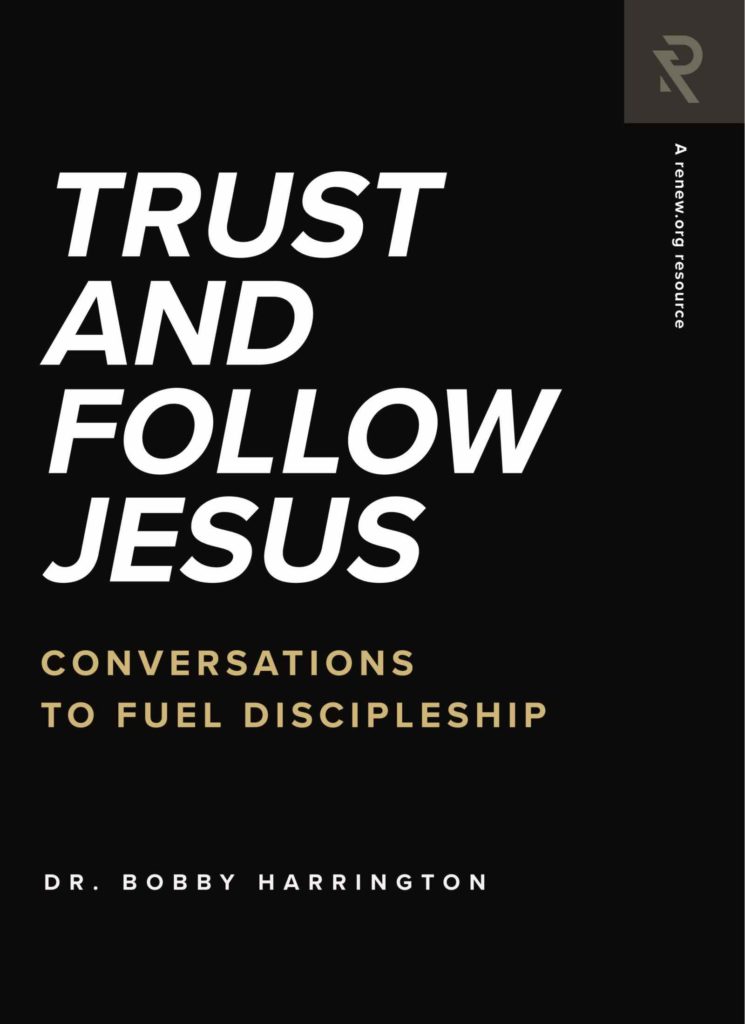
Sermon on the Mount: Treasure in Heaven
In English, “Where your treasure is, there your heart will be also” (Matt. 6:21), almost sounds redundant. We use the word “treasure” to mean something we care about (e.g., “Those kids are my treasure”). But talking about our “heart” also points to things we care about. So Jesus would be saying, “The things you care about are the things you care about.” Not super enlightening.
However, there’s a little more space between these terms in Greek. “Treasure,” in Greek, doesn’t quite have the emotional content that it has in English. It is, first and foremost, a place—a room or a box—where you put things you want to keep safe. Then, secondarily, it is the stuff you put in that box. (And the act of putting them in the box would be called “treasuring” them.)
So Jesus is asking, “Why do you choose to put those specific things in your box?” Answer: because that’s what you value. That’s what’s important to you. That’s where your “heart” is. Since a person’s “heart” is the core of their being, whether you admit it or not, the things you put in your box are the things you build your life around.
Treasure in heaven: “Why do you choose to put those specific things in your box?”
To put this talk of “treasuring” in contemporary terms, perhaps we could talk about “investing.” So the question is: What are you investing in?
Your Treasure Reveals Your Heart
Jesus asks this question because, first of all, what you invest in reveals your heart.
Let’s make the question of “investing” more concrete: what do you spend your time, money, and energy on? This is not a rhetorical question. It is quantifiable. You could chart it out and find the answer (if you dare!). Of course, every person is going to have their own unique answer, but Jesus says that all of our investments are grouped into one of two baskets: things “on earth” or things “in heaven” (Matt. 6:19-20). At the end of the day, your life is centered on one or the other.
Treasure in heaven: “All of our investments are grouped into one of two baskets: things ‘on earth’ or things ‘in heaven.'”
So what counts as “storing up treasures on earth”? Matthew 6:19-21 stands at a pivot point in chapter 6. You can look either direction for an answer. In the first half of Matthew 6, the religious leaders invest their energy in getting praise from other people. That is their treasure, and Jesus’ explicit point is that it has nothing to do with heaven. For the rest of Matthew 6, Jesus talks about the most obvious “earthy treasure”—material stuff.
Interestingly, then, Matthew 6 expresses almost the exact same things that Arthur C. Brooks, a social scientist at Harvard, concludes do not lead to happiness. Based simply on hard data from extensive sociological research, Brooks confirms that money, pleasure (Matt. 6:22-34), power, and fame (Matt. 6:1-18]) are all dead ends on the road to happiness (as Solomon shouts an, “Amen!”).
But even without that, Jesus points to the obvious fact that these things are ephemeral. “Do not lay up for yourselves treasures on earth, where moth and rust destroy and where thieves break in and steal” (Matt. 6:19 ESV). Everything that belongs to the old age will crumble into dust. This is not a controversial statement, and it alone should re-arrange all of our calculations.
What Survives?
Jesus is the only person qualified to assert that there are, in fact, things that survive into eternity. You don’t usually hear eternity brought up in discussions about strategic investing. But if a man literally rose from the dead—as real and tangible as any capital asset you have—that changes everything.
Yes, bringing eternity into our practical, strategic calculations radically alters the balance sheet, but Jesus challenges us that it would be ludicrous to leave it out. There are things that crumble into dust, and there are things that don’t. The purely rational conclusion is that the things that survive into eternity are the only things worth investing in: “But lay up for yourselves treasures in heaven, where neither moth nor rust destroys and where thieves do not break in and steal” (Matt. 6:20 ESV).
Treasure in heaven: “The things that survive into eternity are the only things worth investing in.”
Now, most people don’t intentionally set out to build their lives around the pursuit of money, pleasure, power, or fame. Occasionally you’ll hear of a billionaire who says something like, “Life is a game, and I’m winning!” Or maybe an Instagram influencer who says, “Life isn’t worth living if there isn’t a camera around.” People like that strike us as a little…off.
But Brooks points out that, if we don’t intentionally set out to build our lives on something else, money, pleasure, power, and fame are the pursuits that we all default to. They have automatic appeal and instant rewards, so we follow them like children to the Pied Piper. Without taking the time to be intentional about where we invest our time, money, and energy, that’s where they’ll go. In other words, we are going to store up treasures on earth unless we deliberately decide not to.
The good news is that the things you invest in don’t just reveal your heart. They shape your heart. We can choose to invest in the things of heaven. And as we put our time, money, and energy there, we grow to care about those things more. Slowly, they work their way to the center of our hearts.
Treasure in heaven: “The things you invest in don’t just reveal your heart. They shape your heart.”
So what are these things of “heaven”? Simple—they are the things that survive into eternity. Which is a pretty short list. The only things that survive into eternity are God and people (including you). Invest in those things.
Investing in Yourself
They all deal with relationships. This starts with your relationship with yourself. Your own personal growth and self-care (real self-care, not just escapism or something) stores up treasure in heaven because you survive into eternity. Moreover, this is the foundation for your ability to invest in anything else.
Investing in Your Relationship with God
Then there’s your relationship with God. That’s what the first half of Matthew 6 is all about. More than anything else, this clearly lasts into eternity.
Investing in Your Relationship with Others
Lastly, you can store up treasures in heaven by investing in other people. This can mean both investing in relationships themselves and in trying to help other people. Both store up treasures in heaven because they mirror God’s heart for other people. He values them in and of themselves. Those relationships have merit, not as a means to something else, but because they are intrinsically valuable.
So intentionally build into your life opportunities to invest in yourself, in God, and in others. If at all possible, don’t just build these into your life, but build your life around them. Try to make these opportunities regular and strategic, because successful investments are about small contributions made consistently over a long time. This doesn’t just work for your savings account. It also works for your character. Also remember that any choice to not pursue money, pleasure, power, and fame can simultaneously be an investment in heaven. As Jesus’ one concrete example of “treasures in heaven” says, “Go, sell what you possess and give to the poor, and you will have treasure in heaven” (Matt. 19:21).
Treasure in heaven: “Successful investments are about small contributions made consistently over a long time.”
Interestingly, these “treasures in heaven” also echo Arthur Brooks’ research. He concludes that four things lead to genuine happiness—faith, family, friends, and meaningful service to others. Folks who have spent enough time in the pews are not surprised to hear Brooks say that, if you want to sum this all up in one word, that word is “love.” If you want to store up treasures in heaven, live out love. That’s exactly how Jesus himself sums it up: “Jesus replied, ‘Love the Lord your God with all your heart and with all your soul and with all your mind.’ This is the first and greatest commandment. And the second is like it: ‘Love your neighbor as yourself’” (Matt. 22:37-39).
It’s not too surprising that the “treasures in heaven” match, almost exactly, the things that make people whole and happy in this life. Remember, “the Kingdom of heaven” is the place where things are the way they’re supposed to be. As people created in God’s image who live in a world designed along the grain of his character, the Kingdom life is the life we were meant for. Even in this broken world, living a life that values the things God values is still the best bet.
Of course, living in a world that is broken means that bets don’t always pan out. Sometimes sound investments still go bust. Don’t worry. God is willing to wait years, even lifetimes, to see an investment mature. All we need to do is keep investing in what really matters.
If you don’t see the returns here, that’s okay. You weren’t storing up treasures here, anyway.









